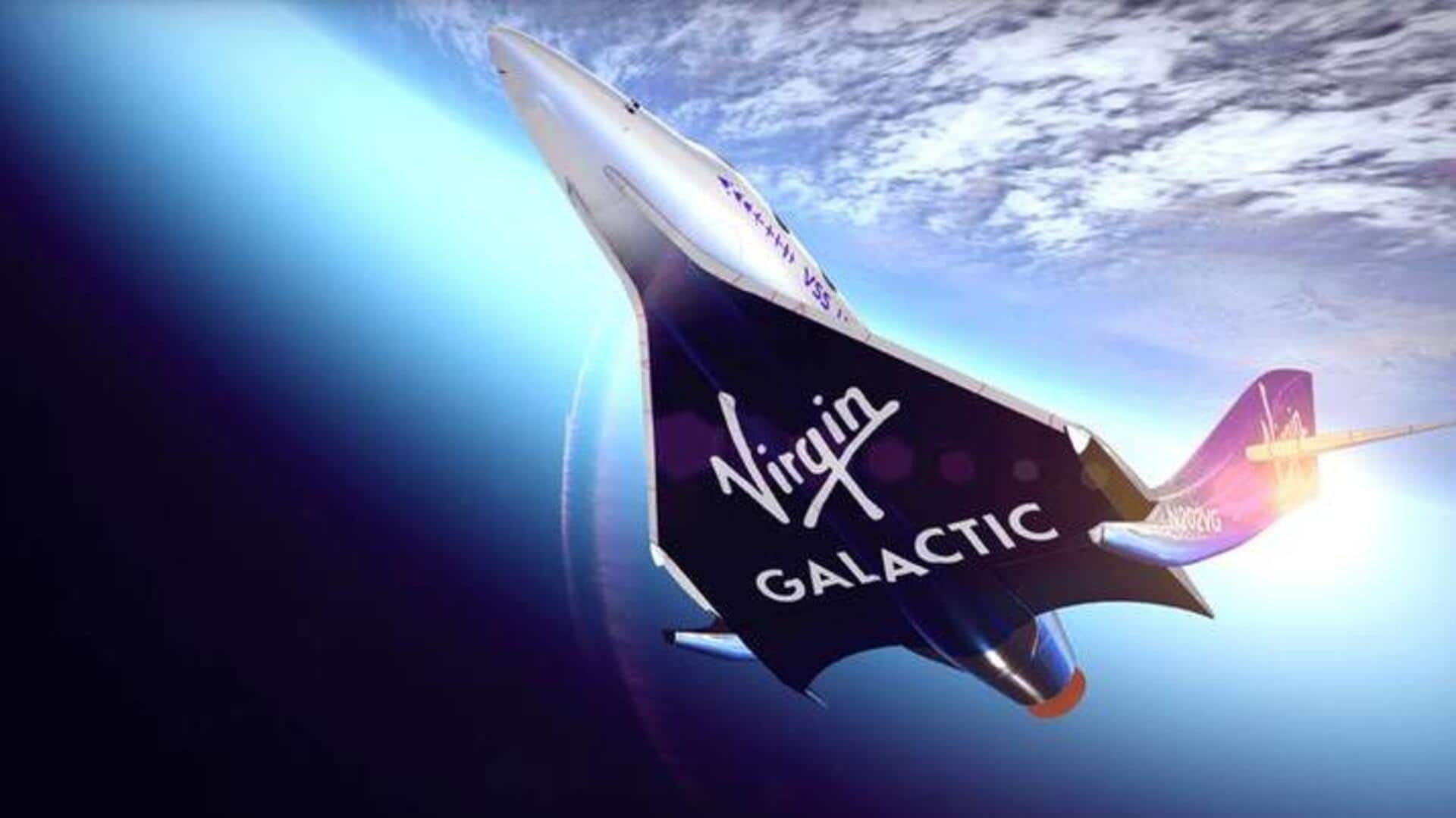
Virgin Galactic's 6th commercial spaceflight to launch on January 26
What's the story
Virgin Galactic will launch its sixth commercial spaceflight, called Galactic-06, on January 26, 2024.
This exciting mission will take four paying customers to suborbital space and will bring them back.
The company, part of Richard Branson's Virgin Group, had a successful run of six spaceflights in just six months in 2023.
Private astronauts from Texas, California, Austria, and a joint participant from Ukraine and California will be part of Galactic 06. However, their names are yet to be revealed.
Flight system
Virgin Galactic's spaceflight system comprises two components
Virgin Galactic's spaceflight system comprises a two-pilot, six-passenger spacecraft called VSS Unity. A carrier plane, called VMS Eve, launches Unity off the ground.
VMS Eve carries VSS Unity up to an altitude of about 50,000 feet and then releases it. Unity then fires its onboard engines to head to suborbital space.
Although it won't reach orbit, passengers aboard Unity can get stunning views of Earth from space and can experience several minutes of weightlessness, before returning to Earth.
Information
Controls for VMS Eve and VMS Unity
During the Galactic-06 space flight, the Unity space plane will be led by Commander C.J. Sturckow and Pilot Nicola Pecile. Meanwhile, the Eve carrier plane, will be commanded by Michael Masucci and piloted by Dan Alix.
Details
Future plans for Virgin Galactic
Virgin Galactic plans to ground Unity in 2024 after perhaps two more flights. The company will then focus on creating the next-gen "Delta class" space plane.
Once ready, Delta-class vehicles could fly twice a week compared to Unity's monthly flight. Delta can carry six customers, and is said to be able to generate 12 times more revenue per month than Unity.
Test flights for Delta vehicles are expected to kick off in 2025, with full operational service starting in 2026.
What Next?
Virgin Galactic's rival Blue Origin recently made a comeback
Virgin Galactic's main rival in the suborbital tourism game is Blue Origin, backed by Jeff Bezos.
After a 15-month hiatus, Blue Origin made a comeback with an uncrewed launch of its New Shepard spacecraft on December 19 and has plans to fly people again soon.
Virgin Galactic's fleet does not cross the Karman Line of 100km, the internationally recognized boundary of space. Their tickets cost $450,000 (about Rs. 3.7 crore).
Meanwhile, Blue Origin's spacecraft flies past the Karman Line.